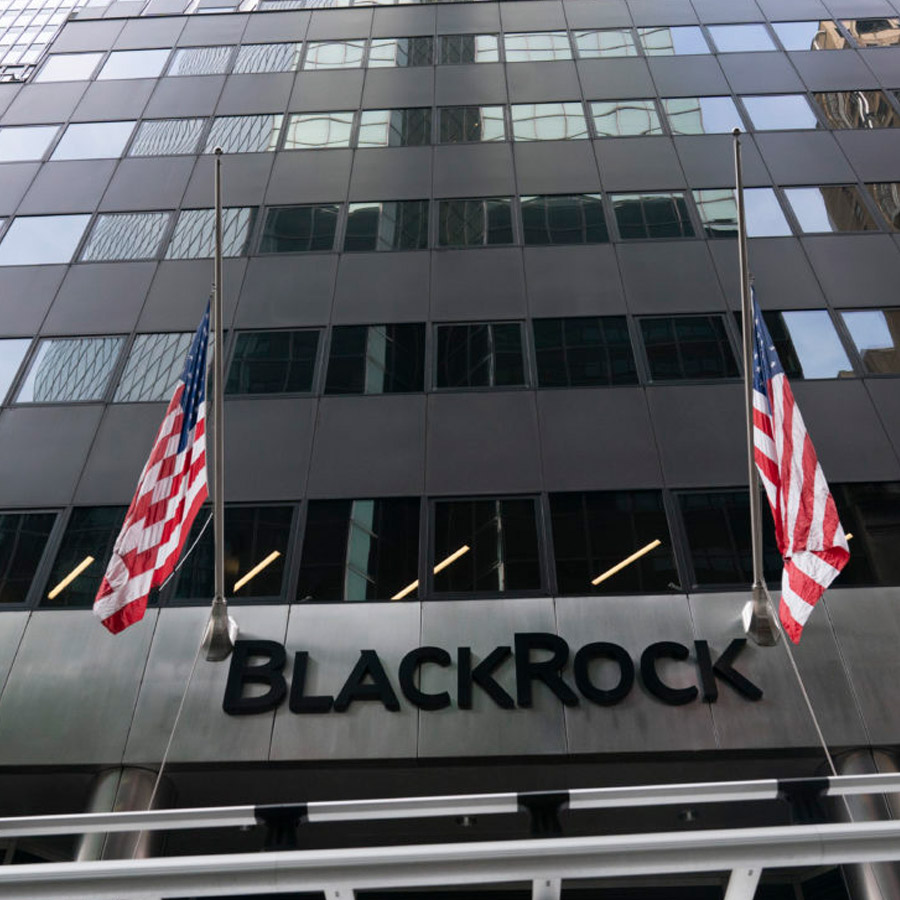In today's world, finance is driven not only by banks and corporations but also by investment funds that make decisions affecting the economies of entire countries. One of the most powerful and influential players in this field is BlackRock. This article will delve into the secret history of BlackRock, reveal its influence on the global economy, and explain how its actions shape our everyday lives.
The Beginning: From Startup to Giant
BlackRock was founded in 1988 in New York by a small group of financiers led by Larry Fink. Initially, the fund focused on asset management and risk hedging for clients. However, the rapidly growing interest in investments and new financial instruments contributed to its rapid development. In 1999, BlackRock went public and has since become one of the largest investment funds in the world. Today, its market capitalization exceeds $100 billion, and the fund manages assets totaling over $9 trillion.
Why BlackRock Matters
As of now, BlackRock manages assets amounting to over $9 trillion. This figure surpasses the GDP of many countries. For instance, BlackRock's assets exceed the GDP of Germany and the UK, highlighting its tremendous influence on the global economy. The fund's influence spans various sectors, including technology, energy, and even healthcare. BlackRock has become a crucial player not only in financial markets but also in politics, shaping the strategies of companies and governments.
Investment Strategies: How BlackRock Chooses Targets
One of BlackRock's distinguishing features is its investment strategy. The fund is known for its approach to long-term investments, allowing it to evaluate companies not only by current metrics but also by their future potential. BlackRock employs complex algorithms and analytical tools to select companies worth investing in. This approach has enabled it to grow its assets exponentially.
Interesting fact: BlackRock develops its own technologies for data analysis and market trend forecasting. Its Aladdin platform is used not only for managing the fund's assets but also offered to external clients, including banks and pension funds. This allows BlackRock to not only control its investments but also influence the market as a whole.
Market Influence: How BlackRock Controls Companies
Despite being an investment fund, BlackRock's influence on companies can be compared to that of shareholders. The fund holds significant stakes in some of the largest global companies, such as Apple, Microsoft, ExxonMobil, Google (Alphabet), Facebook (Meta), and Johnson & Johnson. For instance, as of 2023, BlackRock owned about 7% of Apple shares and more than 6% of Microsoft shares. This gives it the ability to influence their strategies and decisions.
Additionally, BlackRock actively participates in shareholder meetings and votes on important issues, including the appointment of board members and changes in company strategies. This approach allows the fund not only to protect its interests but also to advocate for changes that can promote more sustainable development.
Hidden Connections: BlackRock and Politics
Despite its financial power, BlackRock also has close ties to political circles. Some former employees of the fund have held key positions in government structures, raising concerns about conflicts of interest. For example, Mario Draghi, the former president of the European Central Bank, previously worked at BlackRock, and Gary Cohn, the ex-head of Goldman Sachs, served as an economic advisor to Donald Trump.
This raises questions about the extent to which politicians are independent in their decisions when large investment funds play such a significant role in their lives. Critics argue that this relationship can lead to a situation where the interests of financial institutions take precedence over the needs of the general population.
Economic Impact: Crises and Recovery
BlackRock actively participates in recovery processes after economic crises. For example, during the 2008 financial crisis, the fund helped governments cope with the consequences by purchasing troubled assets. This assistance was crucial for stabilizing markets; however, it drew criticism for supporting large corporations at the expense of small businesses.
In 2020, during the COVID-19 pandemic, BlackRock once again played a key role in economic recovery, participating in quantitative easing programs proposed by the U.S. government. The fund purchased bonds from companies experiencing financial difficulties, thereby helping them survive during tough times.
Black Holes: Problems and Criticism
Despite its achievements, BlackRock faces criticism. Some experts argue that the fund is too powerful and exerts a negative influence on the economy and society. There are concerns that its investments contribute to increasing inequality and wealth concentration. For example, analyses show that the fund invests in companies that may contribute to environmental degradation, such as coal and oil companies, which also draws criticism from environmentalists.
Another significant aspect of the criticism is that BlackRock sometimes may overlook the interests of minority shareholders and the general public. Given that the fund holds substantial stakes in companies, it can dictate terms and shape strategy, potentially leading to an increase in shareholder capital at the expense of workers' interests.
The Future of BlackRock: New Challenges and Opportunities
As technology advances and the economic environment changes, BlackRock faces new challenges. Growing attention to ecology and sustainable development forces the fund to reconsider its strategies. In recent years, BlackRock has actively promoted the idea of sustainable investments and ESG (Environmental, Social, and Governance) criteria. For example, in 2020, Larry Fink published a letter to shareholders emphasizing that climate change would shape the fund's investment strategies.
Additionally, with the rising popularity of cryptocurrencies and blockchain, questions arise regarding how these technologies will impact traditional investment models. BlackRock is already exploring investment opportunities in crypto-assets, which could change the market. The fund has begun testing new technologies, including decentralized financial systems, showcasing its readiness to adapt to a changing market.
BlackRock has become a symbol of the modern investment world, and its influence extends far beyond financial markets. Questions about its role and responsibility are becoming increasingly relevant. It is essential to understand that funds like BlackRock shape not only the economy but also social reality. We should closely monitor their actions to comprehend how they impact our world and our future.


















